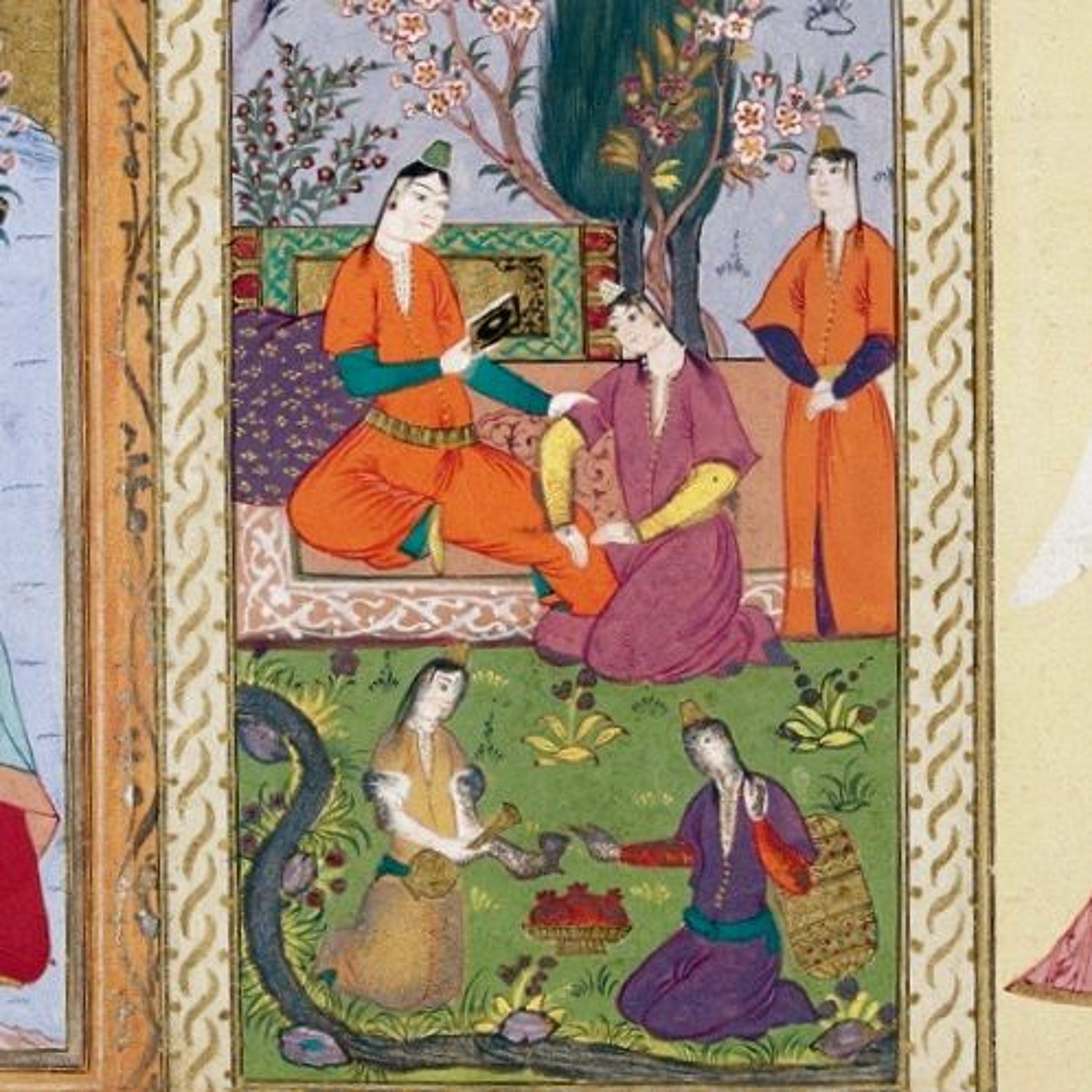
Love Poems of an Ottoman Woman | Didem Havlioğlu
 2018-04-12
2018-04-12
Download
Right click and do "save link as"
E357 | What did it mean to be a woman in the intellectual world of early modern Islamic empires? In this episode, our guest Didem Havlioğlu offers one answer to this question through the life and works of Mihrî Hatun, an Ottoman woman from 15th-century Amasya whose poetry survives to this day. Mihrî was unique within the male-dominated sphere of early modern love poetry, and as we discuss in this podcast, her position as a woman was integral to her poetry and its meaning. These poems and the relationships of this exceptional writer are the subject of Havlioğlu's new book entitled Mihrî Hatun: Performance, Gender-Bending, and Subversion in Ottoman Intellectual History (Syracuse University Press).
More at https://www.ottomanhistorypodcast.com/2018/04/mihri-hatun.html
Didem Havlioğlu is a Lecturing Fellow in the Asian and Middle Eastern Studies at Duke University. She is an Ottomanist working on women and gender in Ottoman intellectual history. She is interested in the making of intellectual culture and discursive construction of gender through time and space, in particular the history of women’s writing. Havlioglu holds a doctoral degree from the University of Washington.
Chris Gratien is Assistant Professor of History at University of Virginia, where he teaches classes on global environmental history and the Middle East. He is currently preparing a monograph about the environmental history of the Cilicia region of the former Ottoman Empire from the 1850s until the 1950s.
CREDITS
Episode No. 357
Release Date: 12 April 2018
Recording Location: University of Virginia
Special thanks to the University of Virginia Corcoran Department of History for supporting the production of this episode
Audio editing by Chris Gratien
Music: Katibim (Uskudar'a Gider iken) - Safiye Ayla
Special thanks to Mutelif for "Samsa"; Sato Moughalian for "Kamancha"; and Kara Günes for "Istanbul"
Bibliography and lyrics courtesy of Didem Havlioğlu available at https://www.ottomanhistorypodcast.com/2018/04/mihri-hatun.html
view more
More Episodes
On the Hajj Trail | Tyler Kynn
 2023-03-20
2023-03-20
 2023-03-20
2023-03-20
Recovering Migrant Histories | Randa Tawil
 2023-01-21
2023-01-21
 2023-01-21
2023-01-21
What is Islamic Art? | Wendy Shaw
 2022-11-03
2022-11-03
 2022-11-03
2022-11-03
012345678910111213141516171819
Create your
podcast in
minutes
- Full-featured podcast site
- Unlimited storage and bandwidth
- Comprehensive podcast stats
- Distribute to Apple Podcasts, Spotify, and more
- Make money with your podcast
It is Free
- Privacy Policy
- Cookie Policy
- Terms of Use
- Consent Preferences
- Copyright © 2015-2024 Podbean.com



